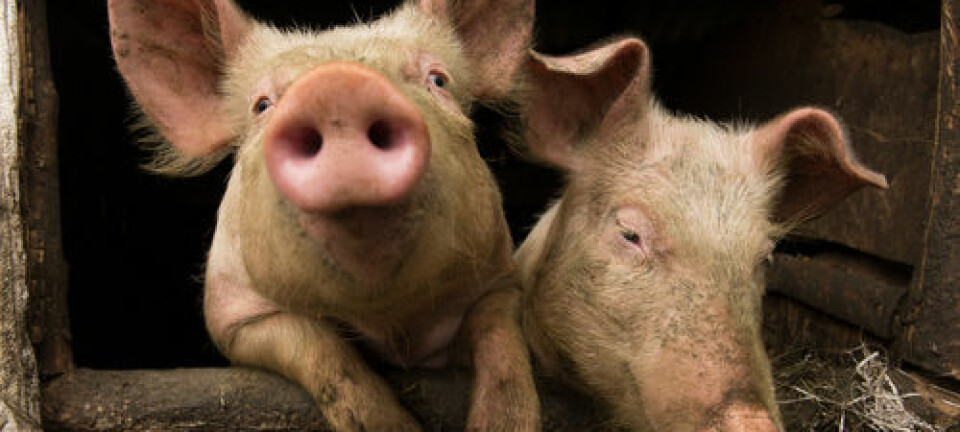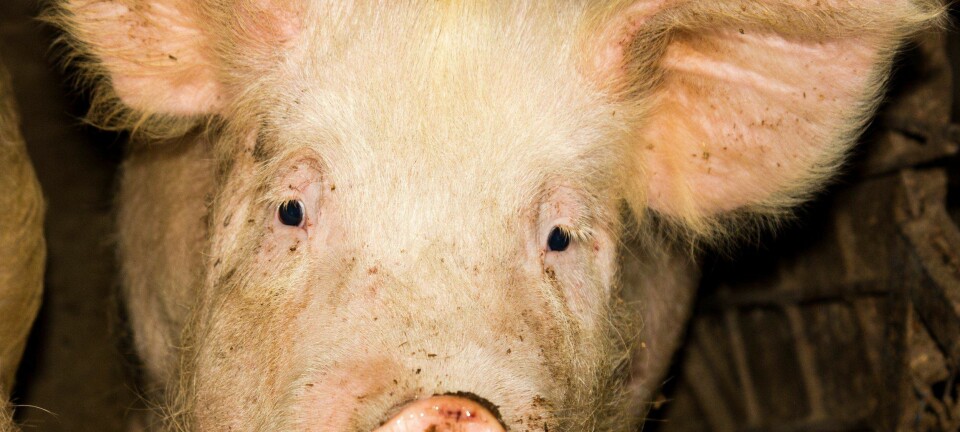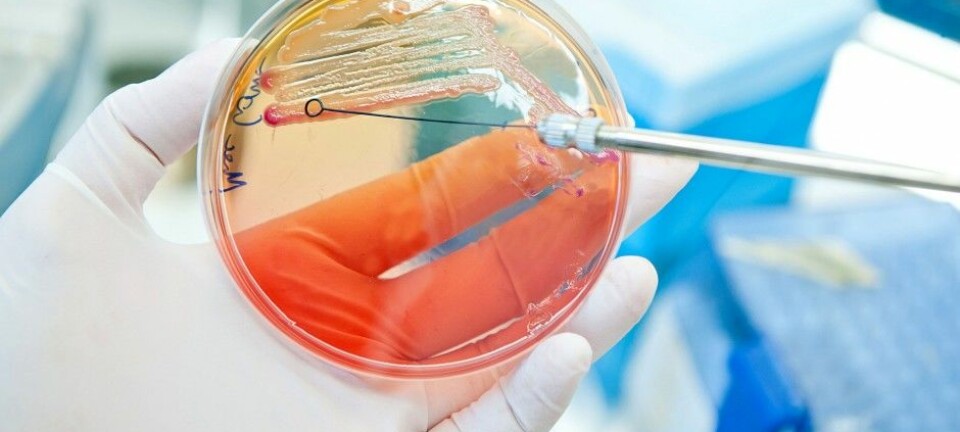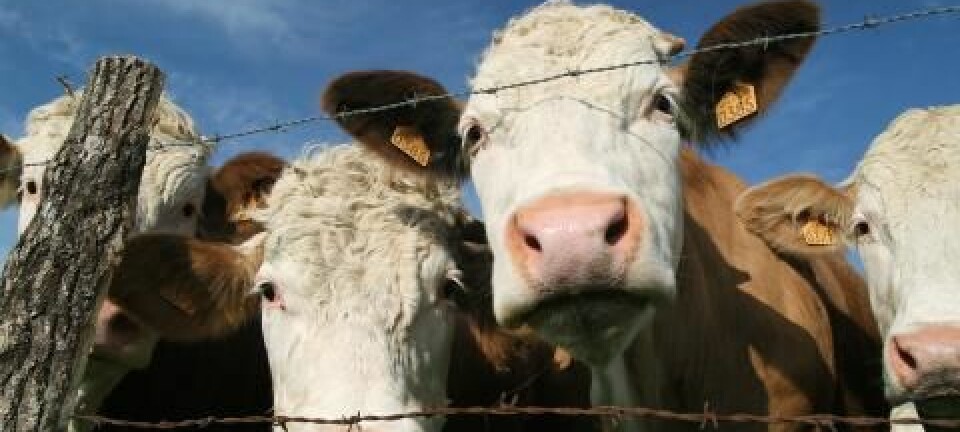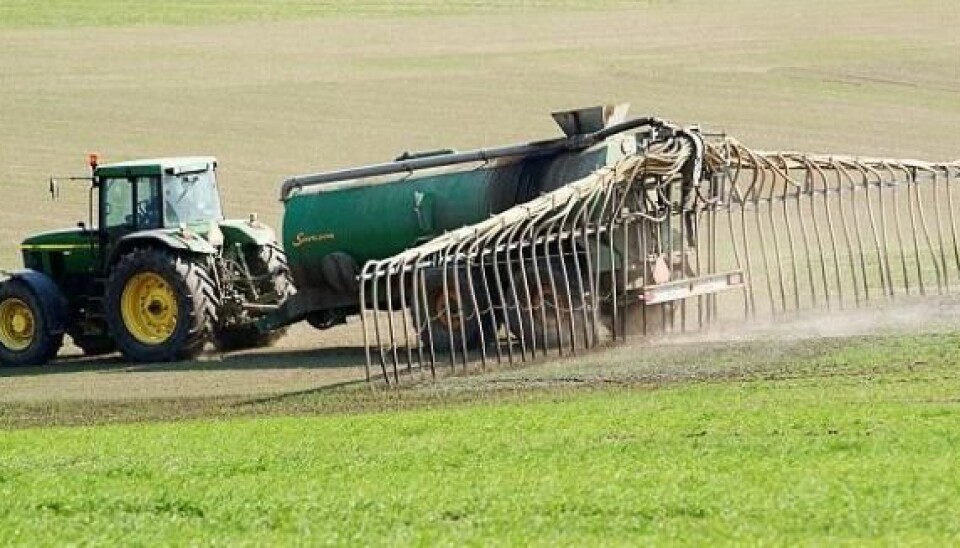
Manure can spread antibiotic resistance
Manure from farm stables can promote genes in bacteria that help make them resistant to antibiotics, shows new study.
You may think that livestock manure is better for the environment and for us than artificial fertilisers. But this may not be the case, according to new research which shows that manure and slurry can help promote antibiotic resistant bacteria in soil.
In a new study, scientists discovered that soil fertilised with manure contains many more antibiotic resistant genes than soil treated with artificial fertilisers.
"We found a clear link between antibiotic resistant genes in soil and manure spreading. It’s quite unique," says co-author Professor Bent Christensen from the Department of Agroecology, Aarhus University, Denmark. Christensen manages the Danish soil archive project—the so-called ‘Askov Long-Term Experiment’—which was used in the study.
The discovery is published in the scientific journal Nature Scientific Reports.
Animal dung promotes resistant soil bacteria
The scientists analysed the DNA of soil samples from the Danish soil archive collected in the period 1923 to 2010. Samples came from fields fertilised with manure since 1894 and from fields treated only with artificial fertilisers.
The levels of antibiotic resistance increased significantly over time in the soil samples taken from fields treated with manure. This increase accompanied the emergence of antibiotic resistance in health care and agriculture. But antibiotic resistance remained low in soil samples from the artificially fertilised fields.
In the old days, animal manure was stored outside farm stables where it transferred all antibiotic resistant bacteria from the animals to the land and fields. These days, slurry--a mixture of livestock faeces and urine--has largely replaced this old-fashioned type of manure. But previous studies have shown that it too can spread antibiotic-resistant bacteria.
Every year, at springtime, Danish farmers spread many million tons of slurry on their farms.
Resistant bacteria occur in the intestinal tract
Hans Jørn Kolmos, a professor of microbiology and antibiotic resistance at the University of Southern Denmark has read the new study and describes the results as exciting.
"It’s very interesting that the amount of resistant genes increased over time in soils treated with manure,” says Kolmos, adding that it is impressive how the development of the types of available antibiotics and the associated types of resistance are also reflected in the new results.
"It shows that antibiotics in livestock production promote bacteria in the animals' intestines, which then develop resistance. Bacteria with resistant genes reach the fields through manure. It emphasises the point that antibiotic resistance in the environment doesn’t come out of thin air, but comes from the stables," he says.
There is a risk that antibiotic-resistant bacteria in the fields can spread to humans through the food chain, says Kolmos.
"If we don’t get a grip on the use of agricultural antibiotics, we’ll have a gigantic manure problem if these resistant genes find their way to people,” says Kolmos, and emphasises that humans can ingest these resistant bacteria through the crops grown in fields treated with manure or slurry.
------------------
Read the Danish version of this article on Videnskab.dk
Translated by: Catherine Jex
Scientific links
- Nature Scientific Reports 2016: Appearance of β-lactam Resistance Genes in Agricultural Soils and Clinical Isolates over the 20th Century. Doi: 10.1038
- Environmental Science and Technology 2010: Evidence of Increasing Antibiotic Resistance Gene Abundances in Archived Soils since 1940. Doi: 10.1021
- Environment International 2003: Bacterial antibiotic resistance levels in Danish farmland as a result of treatment with pig manure slurry. Doi: 10.1016
